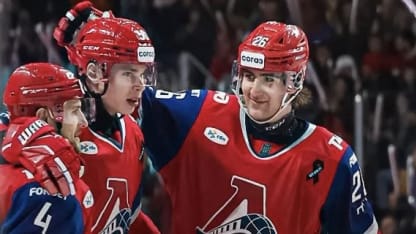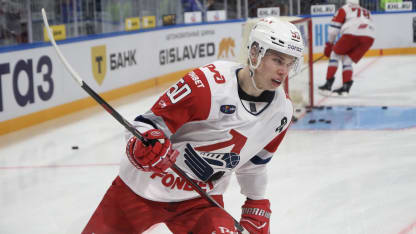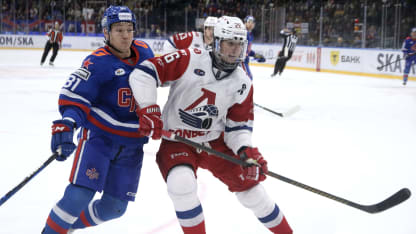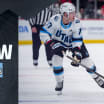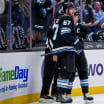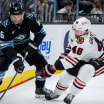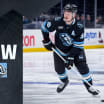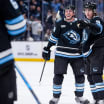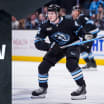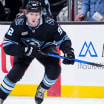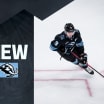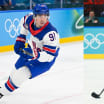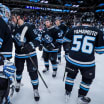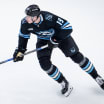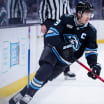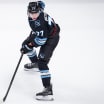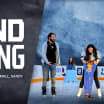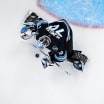When the scouting braintrust of the Utah Mammoth first came together five years ago, GM Bill Armstrong, director of amateur scouting Darryl Plandowski and associate director of amateur scouting Ryan Jankowski adopted a mantra: Leave no stone unturned. As the team began a full-on rebuild, the trio knew it would need to find players at every stage of development, in every credible league, in every corner of the hockey-playing world.
The signing of Russian prospects Dmitri Simashev and Daniil But, announced on Wednesday, is a prime example of those efforts.
"We're excited because not a lot of people have seen these guys play," Armstrong said. "We took a big swing at the [2023 NHL] draft. We thought they were the two best players on the board and we weren't afraid to take them. There were some people who questioned us, but you know the saying, 'No risk, no reward.'"
Utah's exhaustive scouting approach has already paid dividends in the form of countless draft picks over the past four years, and with the signing of professional European free-agents such as Karel Vejmelka. But in May of 2023, Armstrong, Plandowski and Jankowski took that no-stone-unturned mantra to an extreme level.
Live viewings are a critical piece of most scouting staffs' core philosophy, but the Russian invasion of Ukraine in February of 2022 prevented scouts from traveling freely throughout the country. That, in turn, led many analysts, scouts and GMs to question NHL teams' ability to fully evaluate draft-eligible Russian players.
Armstrong, Plandowski and Jankowski found a way around that obstacle. The three men flew to Mink, Belarus, and sat in the upper corner of Chizhovka Arena to watch Simashev and But compete for Russia's U18 team in a tournament. The only other team scouting that tournament was the New Jersey Devils.
One month later, the team selected Simashev at No. 6 overall and But at No. 12 overall at the 2023 NHL Draft in Nashville. Pending travel visas, both players are expected to attend development camp in Park City this summer, and training camp this fall.
"It feels amazing," Simashev said. "I had a goal to win the Gagarin Cup and then go to the NHL and try to be the best player I can be. I watched highlights of every Utah game. I know every player in Utah and how they play. Coming to Utah, for me, it's basically like a dream."
There's a lot to like about the development paths of Simashev and But. They played the past two seasons in the KHL — widely considered the second best league in the world. They played in the Gagarin Cup Finals the past two seasons, and they won the KHL title last week with Yaroslavl Lokomotiv.

